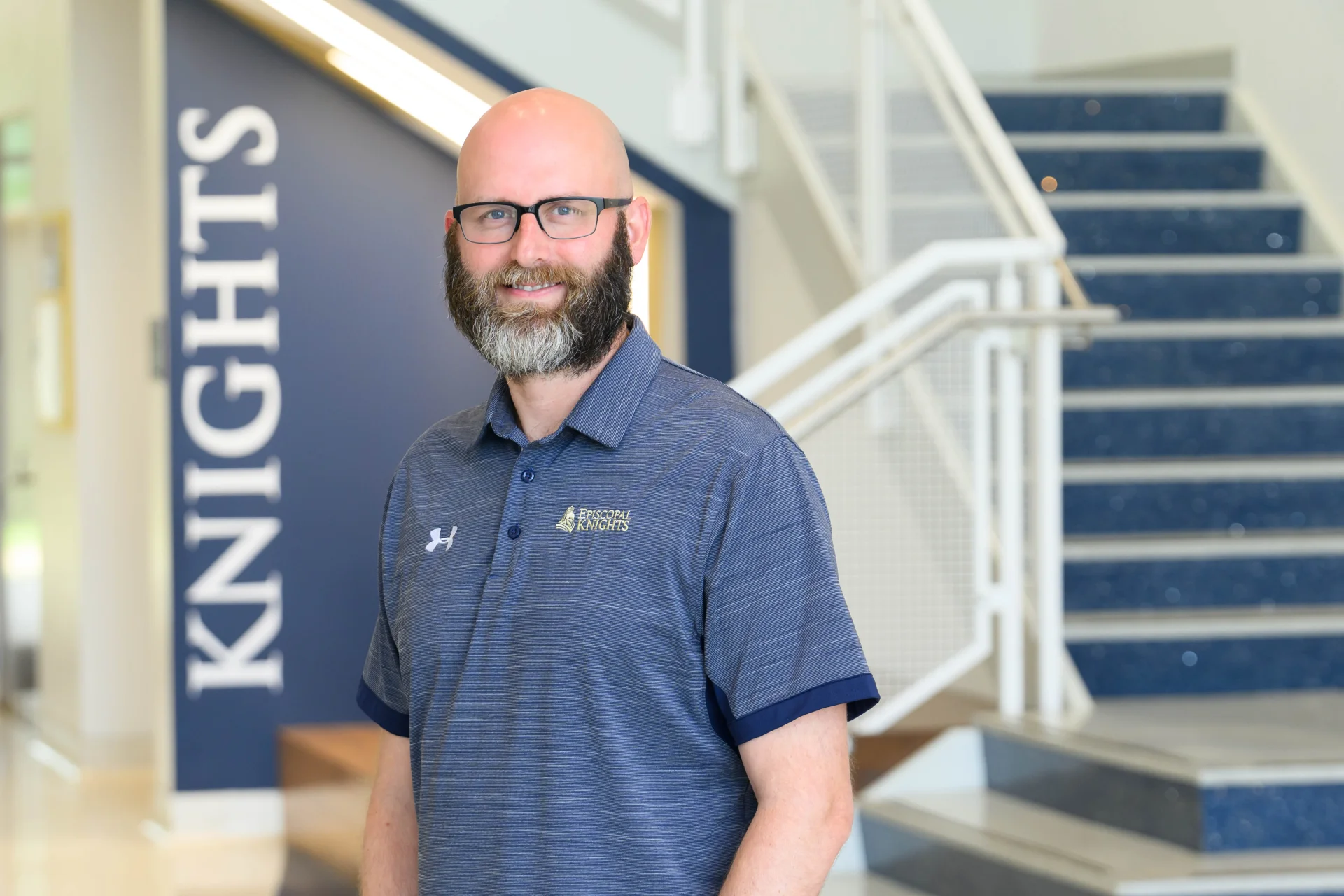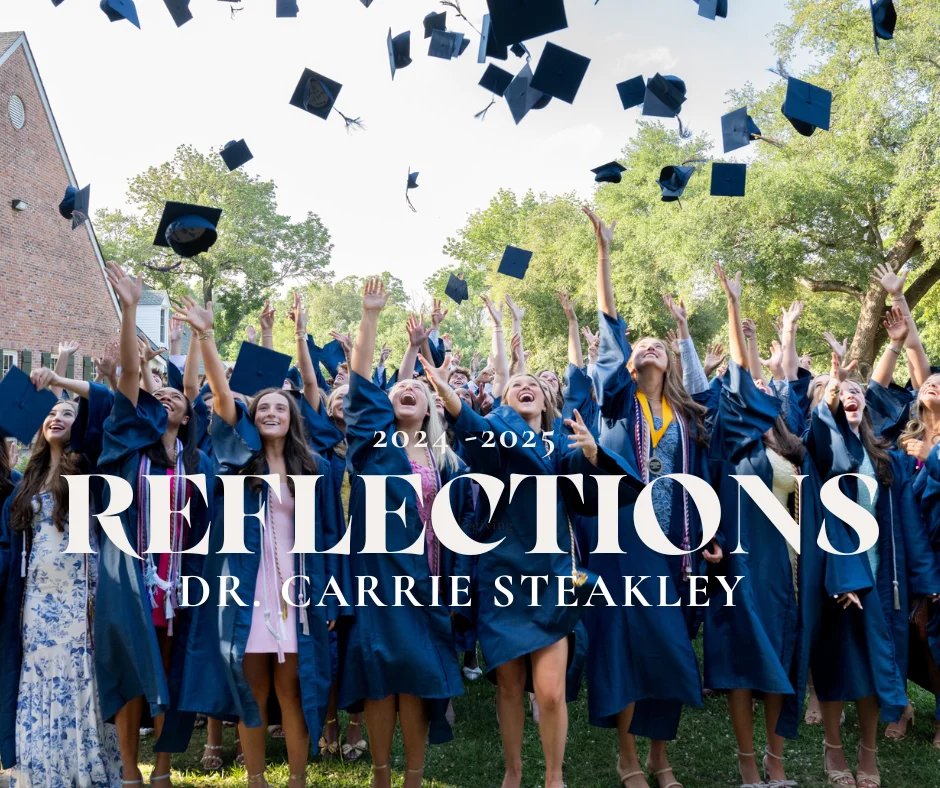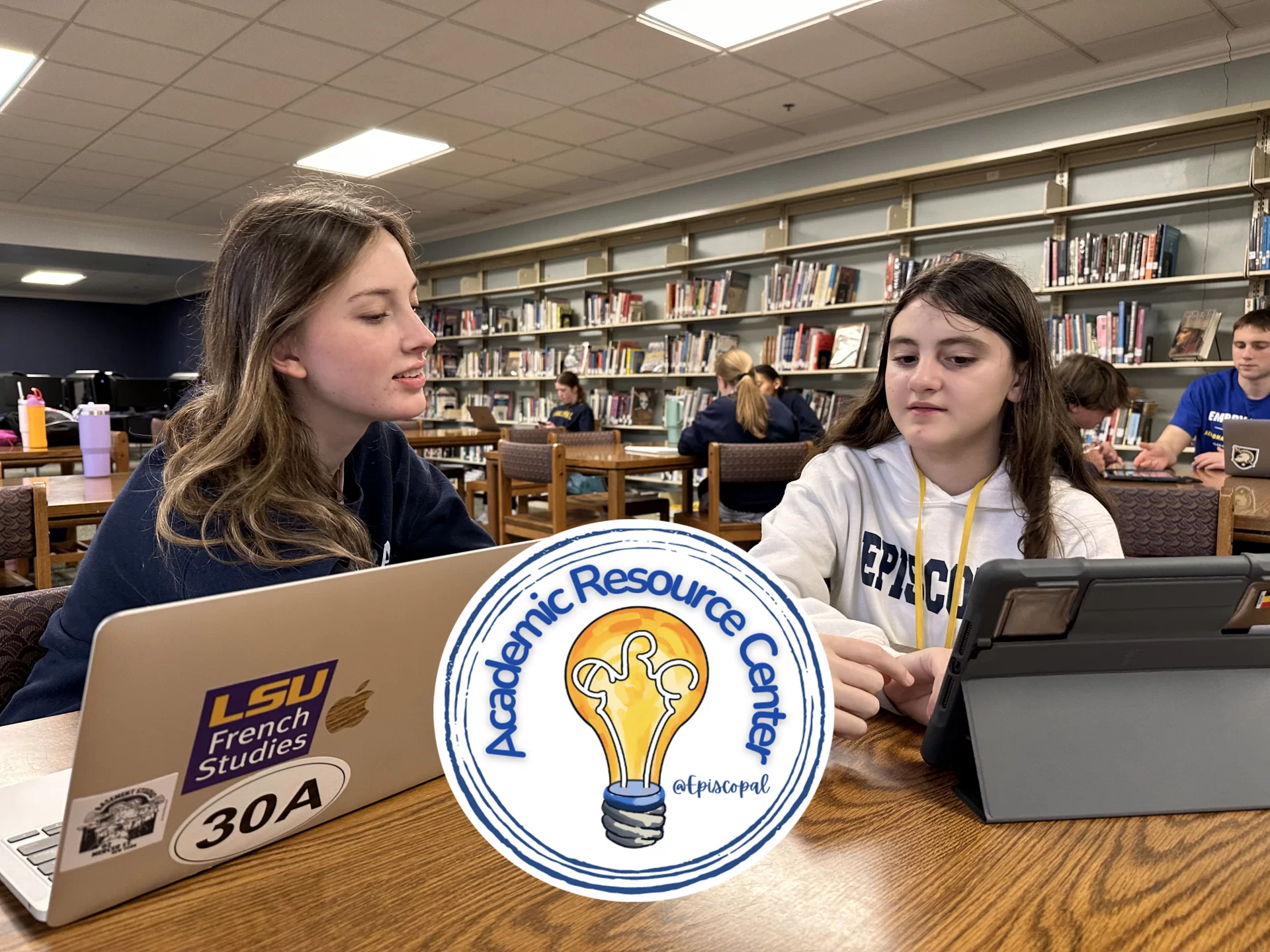- Admission
- Discover Episcopal
- Our Program
- Athletics
- Arts
- Spirituality
- Student Life
- Support Episcopal
- Alumni
- Parent Support
- Knightly News
- Contact Us
- Calendar
- School Store
- Lunch Menu
- Summer Camps
« Back
Second Graders are Seeing Stars at "Space Camp Headquarters" in the QUEST Center
March 17th, 2021

Episcopal second graders are participating in an out-of-this-world project-based learning unit on space. The QUEST Center in Foster Hall recently served as Space Camp Headquarters for these adventurous astronaut candidates. Students spent five days at headquarters where they participated in group activities and hands-on learning experiences.
Telling Stories through the Stars

Students learned about stars and the concept of constellations in the Star Lab, which was created from plastic sheeting, tape and a little imagination. QUEST Center Coordinator Dr. Elizabeth Lewis made fun constellations to generate excitement among the students as they learned how ancient people told stories through the stars before the time of electricity. The students’ imaginations were sparked as Dr. Lewis says “they got to make up their own stories.”
Learning the Scientific Method with Seeds
In Kitchen Chemistry, second graders learned how astronauts grow food in space using hydroponics. Students started by planting vegetable seeds in tiny cubes. Now, as the seeds sprout, students are monitoring and tracking their growth. Dr. Lewis introduced the hydroponic concept with the help of an old yoga mat and a container of water. Once the seedlings are repotted into little baskets, they are placed inside holes cut in the yoga mat. The yoga mat floats on the surface of the water, and the baskets with plants are partially submerged in water. The design provides an easy way to create a hydroponic system using recycled materials.
Throughout the growing process, scientific discussions and discoveries occur. For example, students are cultivating the same type of carrot in three different types of water to determine which water (regular water, sugar water or salt water) is most conducive to growing food. Later on, students will plant a seed in water and an identical seed in soil to determine which medium works best. “They are learning the scientific method and designing their own experiments,” says Dr. Lewis.


Developing Critical Thinking Skills One Turn of a Screw at a Time
In the vastness of space, you can’t call a repairman when something breaks. With that in mind, students were challenged to take apart a variety of electronics. “The kids loved it,” says Dr. Lewis. “Usually, parents don’t let kids take things apart so this was a real treat.” As students disassembled the devices, they also developed life skills such as how to use a screwdriver. Once the machines were broken into tiny pieces, Dr. Lewis says numerous students truly enjoyed the challenge of trying to put them back together. “It’s like a puzzle,” she says. “They could have done that all day.” With each turn of the screwdriver, students were developing problem-solving, critical thinking and motor skills, which are certainly important for visitors to outer space.
The project-based unit is far from complete. The future astronauts are now participating in agility, strength and balance training during physical education. In the classroom, students are writing about their experiences and keeping a Space Camp Journal. Eventually, the second graders will research a celestial body and share what they’ve learned with their classmates. In addition, they will return to the QUEST Center to program robots and participate in a Mars landing engineering challenge. It’s a great time to be a second grader!


Posted in the categories All, Lower School.
Other articles to consider
 Jun5Episcopal Announces New Athletic Director
Jun5Episcopal Announces New Athletic DirectorPlease join us in welcoming Brent Broussard to the Episcopal community.
See Details Jun2Episcopal Welcomes Dan Binder as the Next Upper School Division Head
Jun2Episcopal Welcomes Dan Binder as the Next Upper School Division HeadPlease join us in welcoming Dan Binder to the Episcopal community.
See Details May22End of the Year Reflection from Dr. Steakley
May22End of the Year Reflection from Dr. SteakleyAn Episcopal education and the community that supports it are remarkable. Dr. Steakley looks back at the moments that made the 2024/2025 school year.
See Details May12Tutoring with a Purpose: Jackson Ezell Reflects on His Time in the Academic Resource Center
May12Tutoring with a Purpose: Jackson Ezell Reflects on His Time in the Academic Resource CenterTime as an ARC Fellow boosts student confidence, encourages friendships and fosters lifelong learning habits. Senior Jackson Ezell reflects on his transformation as a tutor and the transformation of the center from Writing Center to Academic Resource Center.
See Details
Categories
- All
- Admission
- Athletics
- College Bound 2019
- College Bound 2020
- College Bound 2021
- College Bound 2022
- College Bound 2023
- College Bound 2024
- College Bound 2025
- Counselors Corner
- Episcopal Alumni
- Giving
- Head Of School
- Lower School
- Middle School
- Spirituality And Service
- Student Work
- The Teachers' Lounge
- Upper School
- Visual And Performing Arts

















